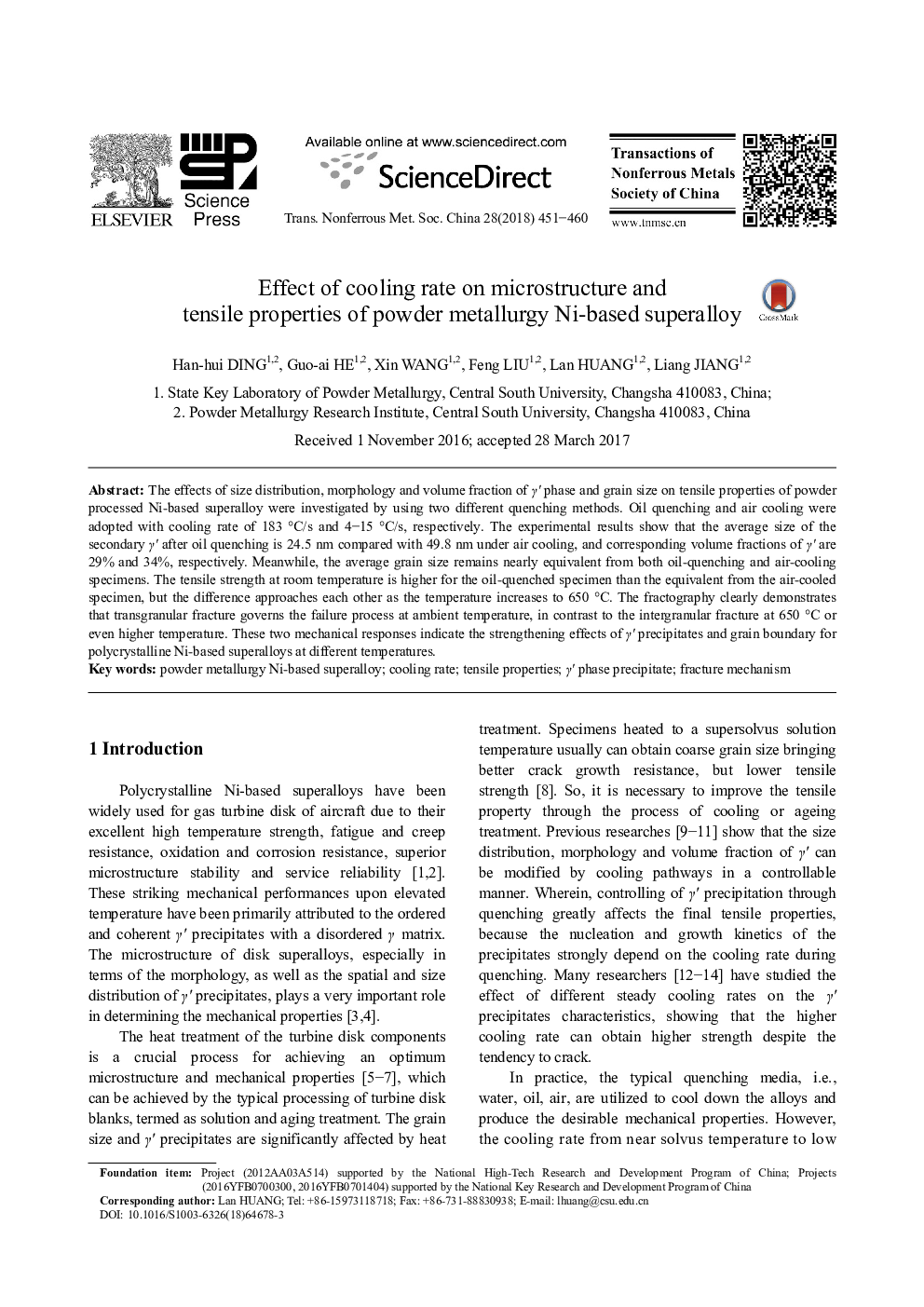| کد مقاله | کد نشریه | سال انتشار | مقاله انگلیسی | نسخه تمام متن |
|---|---|---|---|---|
| 8011689 | 1516923 | 2018 | 10 صفحه PDF | دانلود رایگان |
عنوان انگلیسی مقاله ISI
Effect of cooling rate on microstructure and tensile properties of powder metallurgy Ni-based superalloy
ترجمه فارسی عنوان
تأثیر نرخ خنک کننده بر ریزساختار و خواص کششی فلزات سنگین پودر ابررسانای بر پایه نیکل
دانلود مقاله + سفارش ترجمه
دانلود مقاله ISI انگلیسی
رایگان برای ایرانیان
کلمات کلیدی
موضوعات مرتبط
مهندسی و علوم پایه
مهندسی مواد
فلزات و آلیاژها
چکیده انگلیسی
The effects of size distribution, morphology and volume fraction of γⲠphase and grain size on tensile properties of powder processed Ni-based superalloy were investigated by using two different quenching methods. Oil quenching and air cooling were adopted with cooling rate of 183 °C/s and 4-15 °C/s, respectively. The experimental results show that the average size of the secondary γⲠafter oil quenching is 24.5 nm compared with 49.8 nm under air cooling, and corresponding volume fractions of γⲠare 29% and 34%, respectively. Meanwhile, the average grain size remains nearly equivalent from both oil-quenching and air-cooling specimens. The tensile strength at room temperature is higher for the oil-quenched specimen than the equivalent from the air-cooled specimen, but the difference approaches each other as the temperature increases to 650 °C. The fractography clearly demonstrates that transgranular fracture governs the failure process at ambient temperature, in contrast to the intergranular fracture at 650 °C or even higher temperature. These two mechanical responses indicate the strengthening effects of γⲠprecipitates and grain boundary for polycrystalline Ni-based superalloys at different temperatures.
ناشر
Database: Elsevier - ScienceDirect (ساینس دایرکت)
Journal: Transactions of Nonferrous Metals Society of China - Volume 28, Issue 3, March 2018, Pages 451-460
Journal: Transactions of Nonferrous Metals Society of China - Volume 28, Issue 3, March 2018, Pages 451-460
نویسندگان
Han-hui DING, Guo-ai HE, Xin WANG, Feng LIU, Lan HUANG, Liang JIANG,
